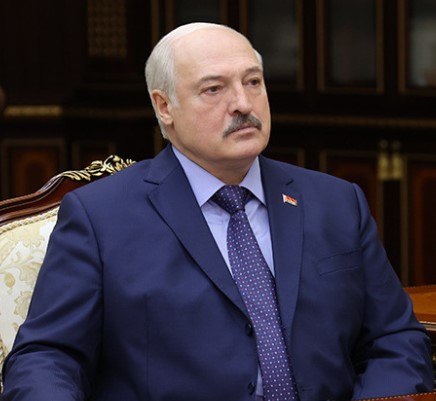The main climate event of the year – COP28: what was said about the agro-industrial complex?

What is COP28?
COP is the United Nations Climate Change Conference, the most important event for climate change negotiations. The negotiations are intended to help implement the provisions of the United Nations Framework Convention on Climate Change (UNFCCC), the Kyoto Protocol (KP) and the Paris Agreement (PA).
What does the agro-industrial complex have to do with this?
According to various estimates, global agriculture accounts for 10 to 18% of total anthropogenic greenhouse gas emissions and up to half of non-CO₂ emissions — methane, which is the gas produced by cows. Methane is a key greenhouse gas that significantly accelerates global warming. According to the Horizons report, methane is 28 times more potent than carbon dioxide over a 100-year horizon.
The COP28 Connection and the Methane-Emitting Agri-Industrial Sector
In 2021, the Global Methane Commitment (GMP) was formulated at COP26 - a collective reduction of global anthropogenic methane emissions by at least 30% by 2030 compared to 2020 levels. More than 100 countries have already joined the GMP, and the largest emitting countries were expected to join at this Conference (in the graph, GMP signatory countries are marked in blue, non-signatories are marked in yellow).
Source: https://www.iea.org/data-and-statistics/charts/top-ten-emitters-of-methane-2021
https://www.globalmethanepledge.org/#pledges
Following COP28, Kazakhstan and Turkmenistan, countries with significant methane emissions, joined the Global Methane Commitment. In total, more than 150 countries have signed the commitment to date, accounting for slightly more than half of anthropogenic methane emissions. However, there were no more emitters from the top ten signatories to the GMP.
What's in Russia?
The agro-industrial sector, as in most countries, is the main emitter of methane in RUSSIA.
Our emissions structure is also not unique. According to Roshydromet, about 15% of Russian emissions are methane. And agricultural emissions by industry account for 5%.
Despite the fact that Russia is among the top ten countries in terms of methane emissions, the state does not plan to join the Global Commitment. Why? Experts and politicians focus on domestic legislation. And indeed, local regulations have been actively created recently. The Climate Doctrine has been updated, laws on mandatory greenhouse gas reporting for large emitters have been introduced, and in the main document defining methane emission targets in Russia - the Strategy for the Socioeconomic Development of the Russian Federation with Low Greenhouse Gas Emissions until 2050 - agriculture is mentioned about 10 times.
Conclusions
Despite the fact that Russia refuses to accept many international climate acts and clearly demands sovereignty in these matters, local legislation regulating greenhouse gas emissions is developing. Strategies, doctrines and recommendations are general documents from which specific laws always follow. it is possible to hope that requirements for accounting, reduction and compensation of methane emissions will not appear, but it is better to formulate the environmental agenda of business on the emerging trend and make it your competitive advantage.
Follow climate news regularly in the TELEGRAM channel of the eco-project "My Trace": https://t.me/moysled2
If you would like to develop a greenhouse gas emissions compensation program, please contact us directly: info@moysled.ru
https://www.sciencedirect.com/science/article/abs/pii/S2352186419302330
https://www.ncbi.nlm.nih.gov/pmc/articles/PMC9598751/
https://www.woodmac.com/horizons/oil-and-gas-methane-challenge/
https://www.state.gov/us-kazakhstan-joint-statement-on-accelerating-methane-mitigation-to-achieve-the-global-methane-pledge/
https://www.mfa.gov.tm/ru/news/4242
https://energypolicy.ru/perspektivy-rossii-v-snizhenii-vybrosov-metana-i-prisoedinenii-k-globalnomu-soglasheniyu-po-metanu/ugol/2023/13/20/
Read together with it:
- Новые горизонты сотрудничества: Россия и Аргентина обсуждают совместный доступ на рынки продукции животного происхожденияОдной из ключевых тем конференции стал контроль за производством ветеринарных препаратов в Аргентине. Аргентинская сторона представила свою систему контроля, включающую Управление ветеринарных продуктов и Управление лабораторий животных. Эти организации обеспечивают высокие стандарты безопасности, так как каждая производственная единица подвергается проверкам каждые 3-5 лет и зарегистрирована в ин...
- Zakharova promised "tough steps" in response to the 19th EU sanctions package.Maria Zakharova RUSSIA will respond harshly to the latest round of EU sanctions, Russian Foreign Ministry spokesperson Maria Zakharova stated on TELEGRAM . The EU previously adopted the 19th package of anti-Russian sanctions, which included a ban on the import of Russian LNG, new restrictions on oil companies, ships, banks, and the EXPORT of certain goods, as well as restrictions on the movement o...
- Совместные проекты и обмен опытом. В каких направлениях Беларусь и Казахстан готовы развивать сотрудничество в АПК23 октября, Минск. Беларусь готова делиться с Казахстаном опытом в аграрной сфере и заинтересована в дальнейшем расширении партнерства. Об этом заявил первый заместитель премьер-министра Беларуси Николай Снопков на первом Белорусско-казахстанском аграрном форуме, который прошел в Астане, сообщает БЕЛТА со ссылкой на пресс-службу правительства. "Беларусь действительно обладает значительным опытом, ...
- Increasing egg production of laying hens in Kabardino-Balkaria: successes and prospectsThe increase in chicken population has been a key factor in this growth. Currently, the total number of laying hens in the republic has reached 2.3 million, a 14% increase over last year. This demonstrates that local farmers are actively expanding their farms by implementing modern technologies and poultry care methods. The main reasons for increased egg production include: Improved feeding: Farme...
- Rostov wholesaler Everest is merging with a loss-making meat supplier from Donetsk.Donskie Traditsii, a wholesale MEAT supplier operating in Donetsk since 2017, saw its revenue decline by 28% in 2024 , to 273.1 million rubles, while losses narrowed from 14.4 million rubles in 2023 to 5.3 million rubles. In contrast, Everest increased its revenue by 16% to 3.6 billion rubles in 2024, although net profit declined by 24%, to 11.9 million rubles. Creditors of Donskie Traditsii can f...
- The Russian Union of Travel Industry (RUTI) clarified that EU sanctions will not affect Russian tourism.New EU sanctions prohibit European travel companies from organizing trips to RUSSIA for their citizens. This will not affect the operations of Russian tour operators, Georgy Mokhov, Vice President of the Russian Union of Travel Industry, told RBC, commenting on the 19th package of EU sanctions against Moscow. "This measure does not affect the activities of Russian tour operators within the country...





























































